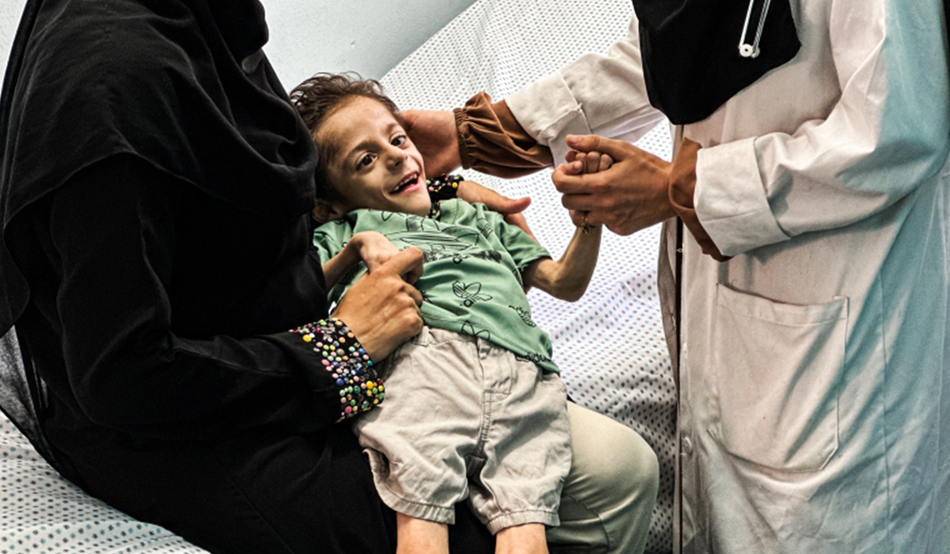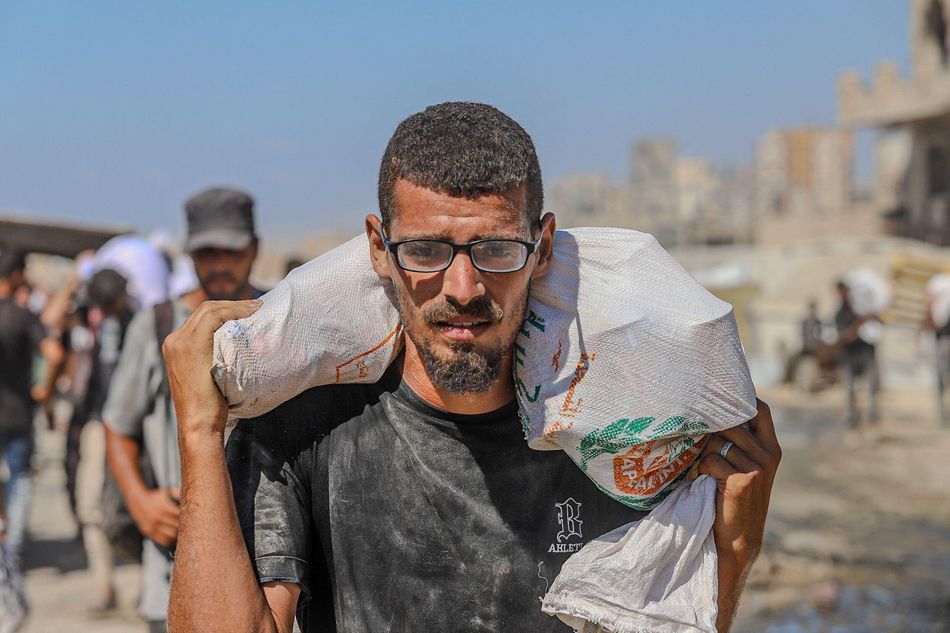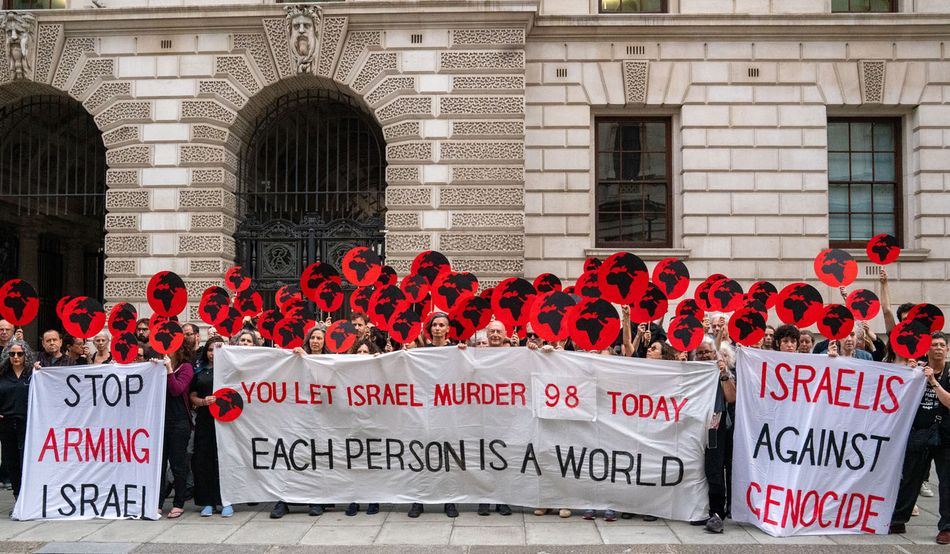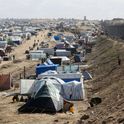In a cramped room of a relative’s home, 26-year-old Suzan Maher Ramadan holds her young son, Hamza Salah Shabat. Hamza hangs limply in his mother’s arms. He’s four years old and weighs eight kilograms. His belly is swollen far beyond his small frame. His face is pale, and his breathing is no longer steady—it comes in short pulls. The illness has eaten away his strength; he can’t even lift his head anymore. Hamza’s liver is badly swollen. Each breath sounds like it could be the last one.
Hamza was born with a rare inherited childhood disorder, Mucopolysaccharidosis type I (MPS I). The disease is only thought to occur in 1 in every 100,000 live births. Most children with severe forms of MPS don’t make it to age 12.
Suzan strokes his hair without looking up. “He’s hungry all the time,” she says. “Every few minutes, he pulls at my sleeve asking for food. Before the war, I somehow managed to find his special milk, lactose-free and sugar-free—over 100 shekels a can now—and sometimes even the medicine. Now there’s nothing. I can hear his breath getting weaker every day.” Sugars damage his liver and worsen the swelling, making the formula essential. Israel’s blockade has made sourcing it almost impossible.
Soon after her son was born, Suzan knew something was wrong. Hamza rarely slept. Fevers came in waves. His belly grew round while his body stayed thin. “We spent nights in hospital corridors instead of at home,” she recalls. “Doctors kept giving him painkillers. Nobody knew what was wrong. It took two years, and more than 30 tests before they told me it was MPS.” The diagnosis finally came from Jamil al-Bahalsawi, a senior physician at Al-Nasr Children’s Hospital, after Hamza was referred from four other facilities.
Doctors urged treatment abroad. Hamza needs spinal nerve surgery before he turns five. “If delayed, it will no longer be successful,” says his father, Salah Shabat. “If done in time, it will help connect his nerves, allow him to open and close his hands comfortably, improve brain function and even his hearing. Without it, he will face irreversible damage.”
In 2020, his mother Suzan took Hamza to Ramallah for tests. A surgery date was eventually set for November 2023, and Hamza was due to be admitted to the Istishari Hospital in Ramallah. But before the operation could take place, the war began. Borders were slammed shut, and medical referrals stopped overnight. “We had hope for just a moment,” Suzan says. “And then it was gone. Now, every day feels like it’s stealing more of his life.”
The family has searched Gaza for answers long before the war, even sleeping outside hospital gates, begging to be seen. “Doctors looked at him and knew he was sick,” Suzan says, “but without treatment abroad, they had no options.” Her husband Salah adds: “I have not left any hospital or institution in Gaza without going to it, trying to get help. I even carried Hamza to a World Health Organization office in the south, hoping they would take up his case. They told me to wait for a response from the Ministry of Health. I’m still waiting.”
Despite his illness, Salah says that Hamza is “mentally alert, even trying to help his mother sweep the room or collect scraps. He knows people by their clothes, even though his [sight and] hearing is very weak”. They communicate with him mostly through signs.
Some nights, Hamza stops breathing for up to 90 seconds. Salah films these moments, afraid that one day he will not start again. “Even while asleep, he struggles to breathe 14 hours a day because of swelling and adenoids,” Salah says. “He must always have someone beside him.”
Hamza plays alone. Children in the shelter stare, then turn away. “He just wants a friend,” Suzan says. “But they’re scared of how he looks. His suffering isn’t only in his body, it’s the loneliness, too.”
Salah’s voice cracks. “He’s only four. Every day we lose another chance. We just need to get him out before it’s too late.”
But, when getting out of Gaza is nearly impossible, which children can be saved, and at what price? By July 2025, nearly one in five children under five in Gaza was acutely malnourished, three to four times higher than in early 2025. By mid‑July, treatment centres reported that more than 6,500 children were admitted for acute malnutrition in June, followed by nearly 5,000 more in just the first two weeks of July, the highest admissions recorded since the war began.
Clinics say fewer than 15 per cent of nutrition centres are functioning, leaving many children untreated, including Hamza.
Gaza’s borders remain sealed. Israel’s blockade continues. And inside a narrow room, Hamza Shabat grows weaker with each sunrise while his parents plead into the void for someone, anyone, to help save their boy.












